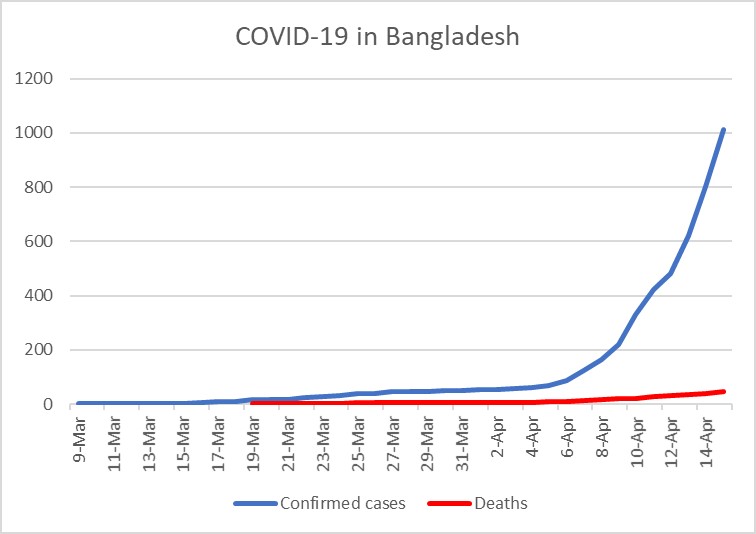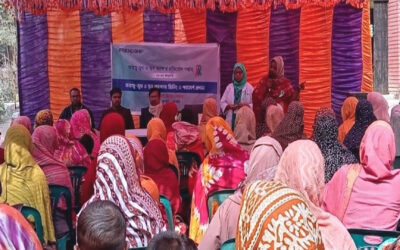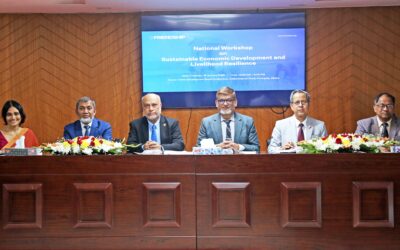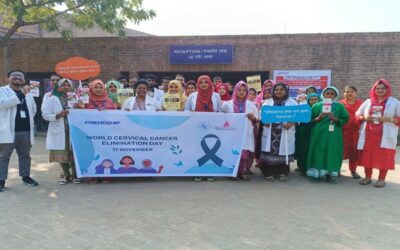A message from the founder and executive director Runa Khan
This week Bangladesh has entered a critical phase in the spread of COVID-19 infections, with the number of cases now rising rapidly. Each day people will die. There is no escaping this reality. Things will get worse before they get better.

The climate-impacted communities where we work are no strangers to disaster. Floods, erosion, drought—these are annual occurrences for these people. When Friendship sailed into the chars of the Jamuna river in 2002 with its first floating hospital, we began serving a community that even the government struggled to reach, because of their distance from the mainland, and the difficulties of negotiating this erosion-prone terrain in the middle of one of the world’s widest rivers.
For two decades we have been working with these communities to build resilience so that they can save lives and minimize the loss in the face of catastrophe.
Today we are faced with a global disaster, the likes of which they have never seen before. But the same Friendship Disaster Volunteers who organize to warn villagers of floods, and who are trained to rescue people when the flood strikes, are now armed with PPEs and loudspeakers, disseminating WHO and government-issued messages about social distancing and hygiene.

And people are understanding, and listening, and doing as instructed. Why? Because firstly they understand better than anybody what it means to be affected by a disaster. Secondly, for two decades they have been attending Friendship’s satellite clinics and developing hygiene awareness.
Paralegals, who ensure that during droughts and in the aftermath of floods the most marginalized get access to government services and assistance, are now doing the same thing. They are linking up with the local government to ensure the most vulnerable are receiving emergency supplies so that they don’t starve while they stay home, or deplete flood-time stockpiles.
And yet, while we ensure people stay home, and that they are equipped to stay protected, it’s a reality that the health sector is under tremendous pressure, which will continue to increase. We provide quality healthcare in some of the most marginalized areas in the world, and now more so than ever, these communities will depend on our services. So our hospital ships will continue to operate, as will our land hospitals, static clinics and health posts.
While the crisis escalates here, we seek encouragement from some of the worst affected countries like Spain and Italy, where the death rates are finally slowing, demonstrating the success of the lockdown and limiting movement. We hope that Bangladesh will also “flatten the curve” soon.





